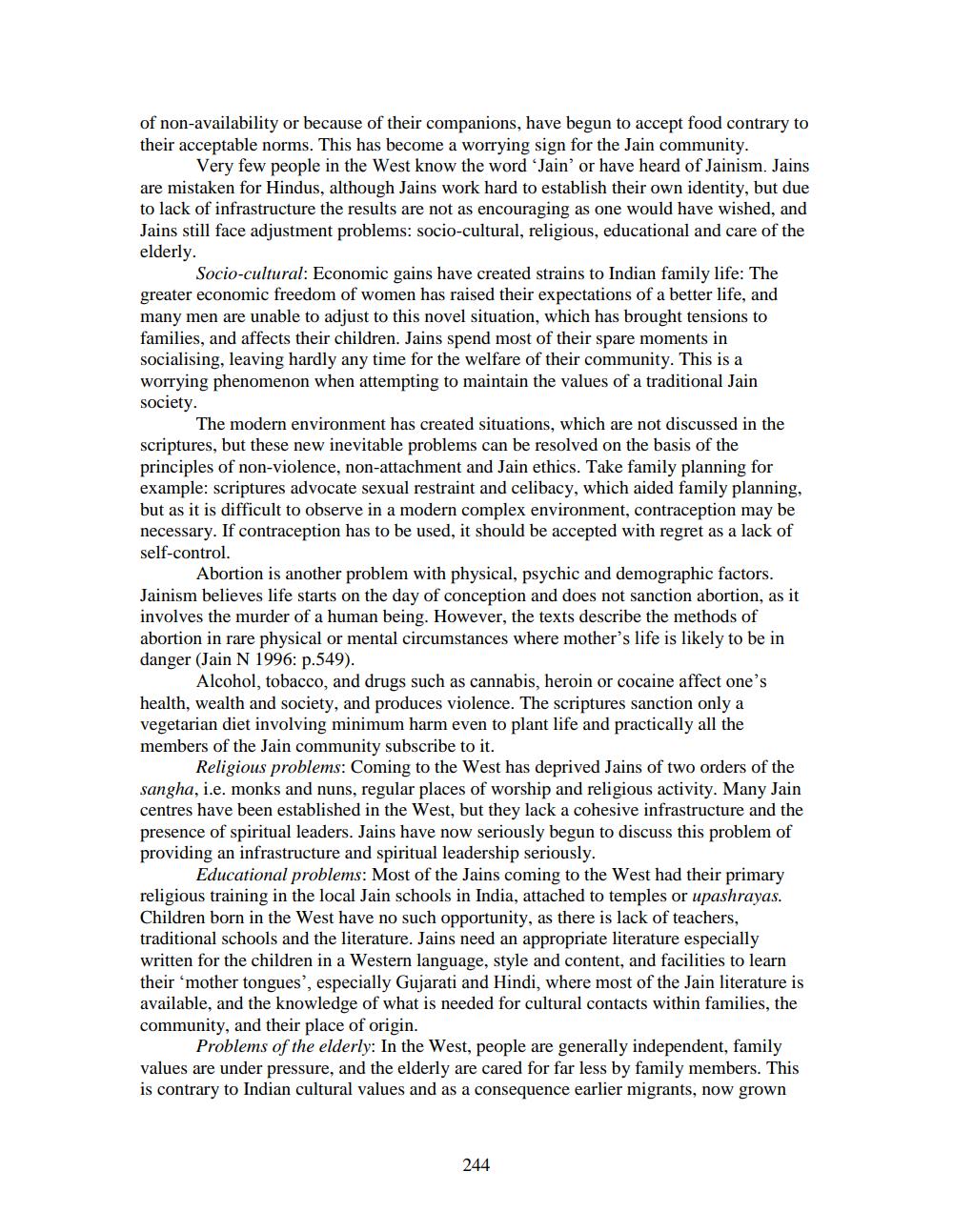________________
of non-availability or because of their companions, have begun to accept food contrary to their acceptable norms. This has become a worrying sign for the Jain community.
Very few people in the West know the word 'Jain' or have heard of Jainism. Jains are mistaken for Hindus, although Jains work hard to establish their own identity, but due to lack of infrastructure the results are not as encouraging as one would have wished, and Jains still face adjustment problems: socio-cultural, religious, educational and care of the elderly.
Socio-cultural: Economic gains have created strains to Indian family life: The greater economic freedom of women has raised their expectations of a better life, and many men are unable to adjust to this novel situation, which has brought tensions to families, and affects their children. Jains spend most of their spare moments in socialising, leaving hardly any time for the welfare of their community. This is a worrying phenomenon when attempting to maintain the values of a traditional Jain society.
The modern environment has created situations, which are not discussed in the scriptures, but these new inevitable problems can be resolved on the basis of the principles of non-violence, non-attachment and Jain ethics. Take family planning for example: scriptures advocate sexual restraint and celibacy, which aided family planning, but as it is difficult to observe in a modern complex environment, contraception may be necessary. If contraception has to be used, it should be accepted with regret as a lack of self-control.
Abortion is another problem with physical, psychic and demographic factors. Jainism believes life starts on the day of conception and does not sanction abortion, as it involves the murder of a human being. However, the texts describe the methods of abortion in rare physical or mental circumstances where mother's life is likely to be in danger (Jain N 1996: p.549).
Alcohol, tobacco, and drugs such as cannabis, heroin or cocaine affect one's health, wealth and society, and produces violence. The scriptures sanction only a vegetarian diet involving minimum harm even to plant life and practically all the members of the Jain community subscribe to it.
Religious problems: Coming to the West has deprived Jains of two orders of the sangha, i.e. monks and nuns, regular places of worship and religious activity. Many Jain centres have been established in the West, but they lack a cohesive infrastructure and the presence of spiritual leaders. Jains have now seriously begun to discuss this problem of providing an infrastructure and spiritual leadership seriously.
Educational problems: Most of the Jains coming to the West had their primary religious training in the local Jain schools in India, attached to temples or upashrayas. Children born in the West have no such opportunity, as there is lack of teachers, traditional schools and the literature. Jains need an appropriate literature especially written for the children in a Western language, style and content, and facilities to learn their mother tongues', especially Gujarati and Hindi, where most of the Jain literature is available, and the knowledge of what is needed for cultural contacts within families, the community, and their place of origin.
Problems of the elderly: In the West, people are generally independent, family values are under pressure, and the elderly are cared for far less by family members. This is contrary to Indian cultural values and as a consequence earlier migrants, now grown
244




